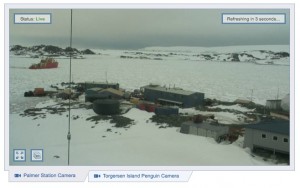This post is addressed specifically to the Kansas high school students that are participating in Project PARKA, but of course I hope that others who read this will think about this too.
I remember exactly where I was when I knew, without a doubt, that I wanted to be a marine scientist. At 8 years old, I had never before been seen an ocean, and had not even ventured out of Kansas, except for a few trips to Missouri. I was standing next to a small pond behind a farmhouse in Harveyville, Kansas. I had been watching a group of tadpoles for a number of weeks metamorphosing into frogs. I still can’t explain why that affected me the way that it did, but it hit me like a ton of bricks. And to this day, I have never thought about any other career choice. I figured out, with of course some bumps in the road, how to get the education and experience I needed to get to where I am at today, and I have never regretted it. My story is what inspired me to start Project PARKA, to bring full circle what growing up in Kansas has done for me. I hope that you enjoy participating in this project and that it gives you some perspective on different career choices you may not have been familiar with. I hope that my story will make you realize that you can do what you want to do if you hold tight to your goals and are willing to work hard. I am looking forward to meeting all of you in April at the student research symposium.
But until then, I want to ask you and I want to hear from you (you can use the comments section below if you want): What inspires you?

